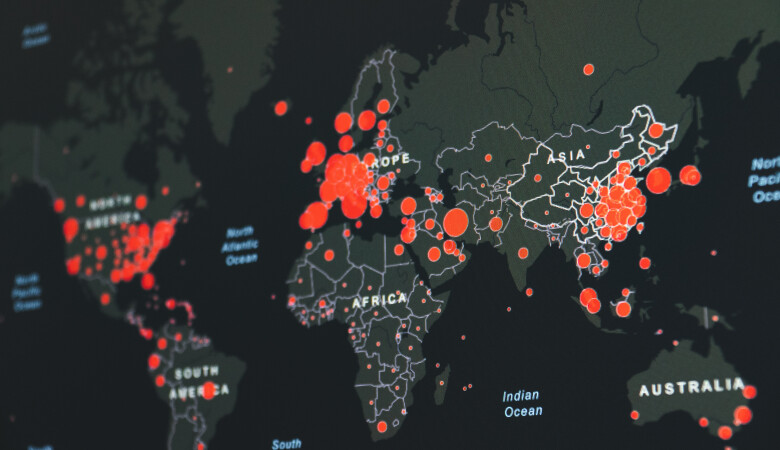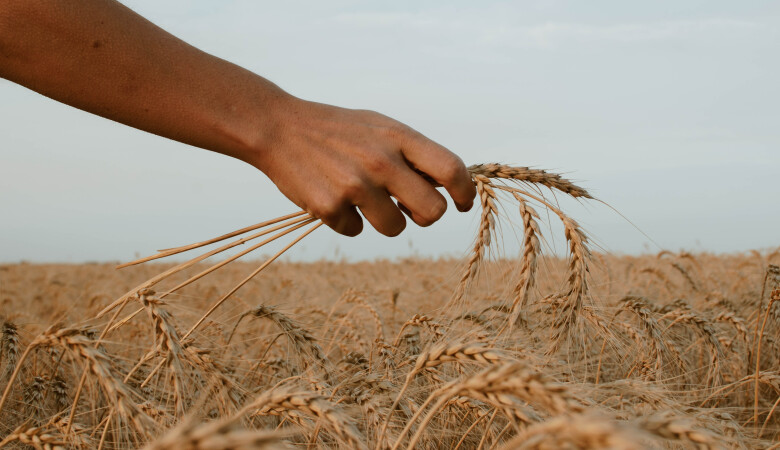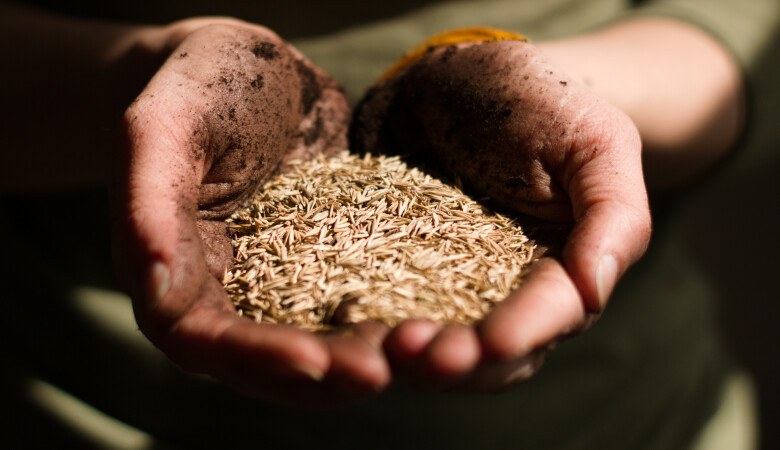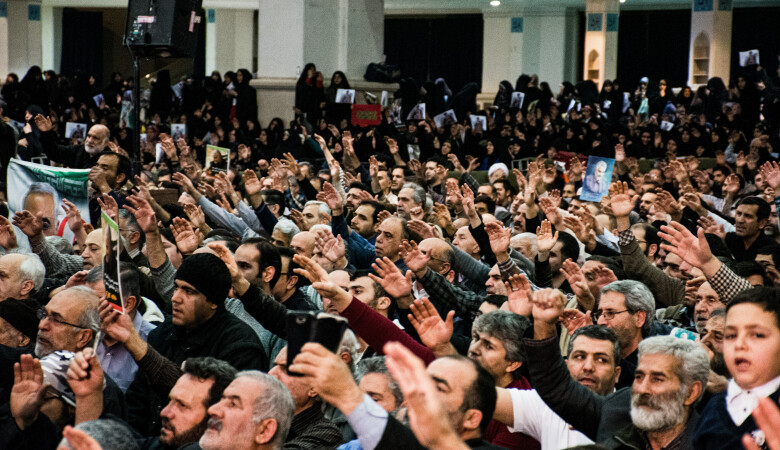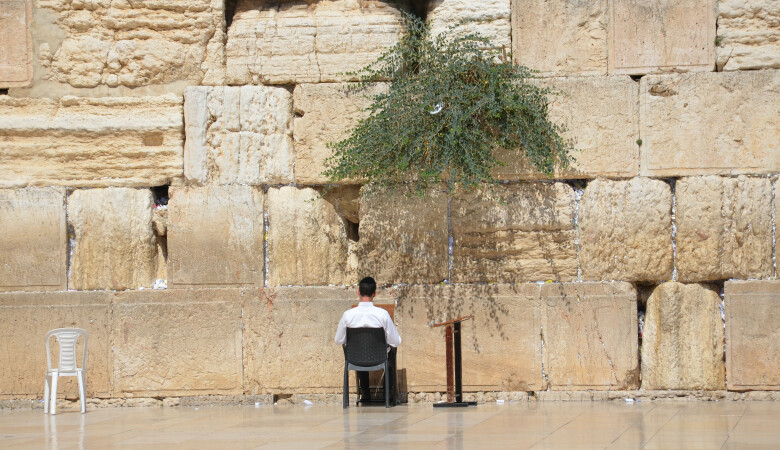Series: Mark
Jesus Feeds a Multitude… Again! (Mark Sermon 35)
December 11, 2022 | Andy Davis
Mark 8:1-10
Kindness of God, Miracles
Jesus, in his kindness and compassion, repeated the miracle of feeding thousands of people.
- SERMON TRANSCRIPT -
Turn in your Bibles to the account you just heard read, Mark 8:1-10. One of the great challenges of our Christian lives is how prone we are to forget God's goodness to us in the past, how wonderfully He has provided for us, how completely and consistently He has met our needs. We tend to forget these things.
These lessons God has crafted over the years of our experiences, and yet we are prone with each new challenge in our lives to look at that circumstance as unique, somehow different than anything we've ever faced before. The one that's going to finally sink us this time, and we forget God's faithfulness over our lifetimes. In His amazing kindness, God patiently orchestrates days in which lessons are repeated and then repeated again.
We have the opportunity to learn from those lessons, God's faithfulness to heal your body when you're sick or injured. God's faithfulness to give you money that you might need for an unforeseen need time and time again. God's faithfulness in feeding your empty stomach day after day. You have to admit, dear friends, He has a very good track record in that over the many years and you can testify to it.
The Psalmist testifies in Psalm 103 where it says so beautifully, "Praise the Lord oh my soul, all my inmost being praise His holy name, praise the Lord oh my soul, and forget not all His benefits, who forgives all your sins and heals all your diseases, who redeems your life from the pit and crowns you with love and compassion, who satisfies your desires with good things so that your youth is renewed like the eagle's. Forget not all His benefits.”
That's why the feeding of a multitude is repeated in the Bible, I believe. Two separate occasions in the gospels, the four gospels, six biblical accounts in all. Two in Matthew, two in Mark, and then one each in Luke and John. Six times the same lesson's repeated for us about the greatness of Christ in feeding the empty stomachs of a multitude of people. It seems like the Lord through the Holy Spirit thought we needed to hear this. We have Jesus feeding a multitude again.
I. Repeated Repetition
The first point in your outline there is repeated repetition, which you would say is redundant. It's intentional. Again and again God teaches us the same lessons and this is a miracle repeated. This almost exactly parallels the earlier feeding of the 5,000 in Mark 6. There are a lot of similarities between the two accounts. It begins with Jesus's compassion. Mark 6:34 tells us that Jesus had compassion on the crowd because they were like sheep without a shepherd.
Here again, this account starts with Jesus' compassion. The location is described as a deserted place in both cases, isolated, distant from a population center. The same question is raised by the disciples as to how they're going to feed such a large crowd in such a remote place. Jesus asks the disciples the same question about their resources, the exact same question, "How many loaves do you have?"
In both accounts, there is the order to have the people sit down on the ground. In both accounts, Jesus takes the loaves, gives thanks, breaks the bread, and gives it to the disciples, to the people. In both accounts, there is a separate mention of the fish being dealt with as well, eaten as well. Also, in both times we're told that everyone in the crowd ate their fill. They were satisfied completely. Then both accounts narrates the broken pieces of bread and fish being picked up off the ground and collected in baskets. Both accounts give the number of the men who are fed omitting the women and children, and both finish with the crowd being dismissed and Jesus and His disciples moving on to another place along the Sea of Galilee to continue ministry. They're both the same, just a couple of chapters apart.
This has led some critics, hostile critics of the Bible, to point this out as a prime example of the slapdash work done by the New Testament writers. These critics don't believe that these events actually happened, but these stories were fabricated and passed down, narrated and then woven together to make the myth of Jesus the God-man. They think we have these New Testament documents as a huge work of existing documents that were thrown together without any careful editing. The accounts of these two feedings are cited as proof of this. Mark, without much thought, just found, I guess a scrap of paper on his desk and just stuck it in here, not knowing he was really recording the same event as before. That's what these critics do.
There are some key differences between these two accounts. Obviously there are details here that are different. 4,000 people fed as opposed to 5,000, seven loaves as opposed to five, a few fish as opposed to two fish, seven basketfuls gathered as opposed to twelve. On that last one, we have to note that the Greek word for basket was different in the two accounts. In the first feeding in the 5,000, the Greek word was “cofinos”, which is a smaller basket or container, like a pouch that you could probably wear on your belt, something smaller, enough food, let's say, for a single individual. In this account, the Greek word was “spuris", like a big hamper, much larger volume, two different words.
If these had been copycat accounts, I think you would've just harmonized those details or they would've been exactly the same. Not at all. These two feedings actually happened and they happened in a relatively short amount of time; Jesus said so. Later in this chapter, the disciples are going to bicker between themselves about having forgotten to bring bread with them on the boat. God willing, we'll talk about that next week.
Listen to Jesus' full answer. Look down at Mark 8:17-21, “Why are you still talking about having no bread? Do you still not see or understand? Are your hearts hardened? Do you have eyes but fail to see, and ears but fail to hear? Don't you remember? When I broke the five loaves for the 5,000, how many basketfuls of pieces did you pick up?’ '12,' they replied. 'And when I broke the seven loaves for the 4,000, how many basketfuls of pieces did you pick up?’ They answered, 'Seven.' He said to them, 'Do you still not understand?’”
II. Why the Repetition?
Oh, there's no doubt at all that there were two different accounts. Jesus uses that as an example and we'll talk about that next week of how they should have learned by experience. The question comes to me, as it always does in the Gospel of Mark, we look at the Holy Spirit's intention in all of this. Why the repetition? Why do we have these two feedings that are so very similar? Now, at one level, this question doesn't even need to be answered. Jesus did lots of miracles over and over and over again.
There are only so many ways you can heal a crippled person or a blind person or a deaf person or a sick person. Generally Jesus touched them, maybe spoke a few words to them, healed them, and they went on their way. Basically it looked the same day after day. Scholars tell us that Jesus had about a three-year ministry and most of the days were alike, healing lots of people with a word or with a touch. Also, Jesus' teachings; we shouldn't imagine that He came up with new content every day. He taught essentially the same things, I think, day after day to the people. We have lots of different parables, lots of different sermons, but we do have some messages that are repeated for us. A very good example is what we know generally as the Sermon on the Mount in Matthew 5-7. We have the Sermon on the Plain, clearly a different occasion ed different location in Luke 6. Both of them begin similarly, "Blessed are the..." Et cetera, but there're actually significant differences between them.
There's some overlapping teachings that are repeated and some differences too. It must be that, day after day Jesus did a lot of the same teaching and covered the same ground. He did different aspects of His ministry multiple times, including this feeding, which He did at least twice. Let's go beyond that into a deeper issue. That is our need for repetition. We need lessons repeated. It just isn't the case that you hear it once and then you've got it for life. It isn't the case that once I make a mistake and learn from it, I never make that mistake again. Would any of you like to raise their hands and say, "That's me to a core, I never make the same mistake twice." I don't think any of us would want to say that. We need the reminders, and the disciples' continual forgetfulness represents us. They stand in our place and they represent us. How do we look? Not great. These individuals had to be reminded of things again and again. We have to go through experiences again and again to learn from them. We are dull and slow to learn like they were. We need this. The Bible makes much of the need for reminding, a repetition of doctrine. For example, the Book of Deuteronomy is the second giving of the law. God didn't say you had it once, you have it for life, but they needed the details of the law repeated right before they entered the Promised Land.
"We have to go through experiences, again and again, to learn from them. We are dull and slow to learn like they were. We need this. The Bible makes much of the need for reminding, a repetition of doctrine."
Jesus would warn His disciples again and again and again about His own suffering and death that was about to happen in Jerusalem and they still didn't get it. They still didn't understand. Their hearts were hardened concerning the need of Jesus to go and die. Then more in general, the New Testament writers speak about our need for reminders, our need for repetition. Philippians is a good example: Philippians 3:1, "Finally, my brothers, rejoice in the Lord. It is no trouble for me to write the same things to you again, and it is a safeguard for you." Paul there in Philippians says, "I have to write the same things to you again and again to keep you safe from your own sin." Then in the next chapter, very famously, Philippians 4:4, "Rejoice in the Lord always." Well, Paul, you already said that in Philippians 3:1, "Again, I will say rejoice."
We have in one verse repeated repetition of the same theme. Do you say, “I don't have to be told more than once to rejoice in the Lord. I know that Christ's crucifixion and resurrection is enough to make me joyful every day.” Do you have to be reminded again and again to rejoice in the Lord? Or again, Paul says earlier in that book, Philippians 3:18, "For, as I have often told you before, and now say again, even with tears, many live as enemies of the cross of Christ." He says, "I say these things to you guys again and again.” Peter talks about repetition also in 2nd Peter 1:12 & 13, "So I will always remind you of these things, even though you know them and are firmly established in the truth you now have. I think it is right to refresh your memory as long as I live in the tent of this body." Peter is saying, "It's part of my job to just remind you of certain things again and again."
Therefore, it's not part of my job as a preacher to come up with something new and fresh every time I get up here to preach. It's just impossible and it's not good for you either. It's going to be the same basic things that you've already heard in perhaps slightly different words. Why do we need this particular lesson repeated, this lesson on food, this lesson on God feeding our empty stomachs? I think this is vital because of some of the core flaws we have in our earthly condition. This is a central issue in our lives. Will I get enough to eat? Will I get enough to survive or not? Ecclesiastes 6:7 says, "All man's efforts are for his mouth, yet his appetite is never satisfied." Everything you do is for your stomach and it never is done. Again, after the feeding of the 5,000 in John's account the next day, remember that the huge crowd came back for another meal. They wanted more. They wanted breakfast. They're back for breakfast. Jesus said, "Do not labor for the food that spoils, but for the food that endures to eternal life, which the son of man will give you." Then He goes on in John 6 to develop the whole theology, "I am the bread of heaven. I am the bread that came down from heaven. If you feed on me, you'll live forever." He's not speaking physical. He's saying, "The words I have spoken are spirit and they're life,”[ John 6]. He says, "Stop living for your stomachs. Stop living for your earthly appetites.”
Then in Hebrews 12:16, we have a warning there, "Make certain that there's no one in your congregation who is godless like Esau, who for a single meal sold his birthright for a bowl of stew because that was what he was all about." As Paul says in that same passage, Philippians 3:19, he says, "I've often warned you that many live as enemies of the cross of Christ. Their God is their stomach."
Therefore, Jesus in the Sermon on the Mount warns us in the whole passage on anxiety, "Do not worry, do not be anxious about your life, what you'll eat, about your body, what you'll wear." He says later, "So do not worry saying, 'What shall we eat or what shall we drink or what shall we wear?' For the pagans run after all these things and your heavenly Father knows that you need them, but seek first His kingdom and His righteousness and all these things will be given to you as well."
The overwhelming anxiety many have of having their bodily needs met must be met by faith in the future grace of God. God is going to care for me. He's going to meet my needs. With food and clothing we'll be satisfied, we'll be content and freed up so that we can seek first His kingdom and His righteousness and not be worried about our earthly bodily needs. We should learn from experience. God is faithful to His children. God is faithful to care for our needs. Psalm 37:25 the Psalmist says, "I was young and now I'm old. Yet I have never seen the righteous forsaken or their children begging bread. I have watched God be faithful to His children year after year." Christ in His kindness and compassion does this miracle twice. The Holy Spirit in His kindness and compassion has the doubled miracle recorded both in Matthew's Gospel and in Mark. In addition to the original feeding of the 5,000 in all four gospels, that's six accounts of Jesus' miraculous feeding of the empty stomachs of huge numbers of people. That's big picture. That's why the repetition.
III. Jesus Speaks With Compassion
Let's walk through the account again. It starts with Jesus' compassion. Look at Mark 8:1-3, "During those days, another large crowd gathered. Since they had nothing to eat, Jesus has called His disciples to Him and said, 'I have compassion for these people. They have already been with me three days and have nothing to eat. If I send them home hungry, they will collapse on the way because some of them have come a long distance.'" Now, as we've noted before, Jesus' compassion is the most common emotional state ascribed to Him.
"Jesus' compassion is the most common emotional state ascribed to Him."
Again and again, we have descriptions of Jesus's compassion or descriptions of Jesus being compassionate. This one time is unique, both in Matthew and in Mark's gospel, this second feeding, Jesus speaks it about Himself here. In all the other accounts we're told Jesus had compassion on the leper or He had compassion on the crowd, something like that. Here He says it about himself, "I have compassion on these people."
Now, the Greek word in our account relates to Jesus's inner organs, His intestines, His gut, His stomach, the KJV says “his bowels”, that kind of thing. That's because we often feel things down here, right? We talk about having butterflies in your stomach. Or you talk about somebody's gut reaction or a feeling in the pit of my stomach, these kind of things. We have a sense that down here is where we feel the feelings.
Jesus is moved here with the compassion of suffering people. He describes himself as compassion, "I have compassion on these people." In this way, Jesus is a perfect display of Almighty God's compassion. We should never think that God the Father, the God of the Old Testament is the God of wrath and judgment and terror, the God of Sinai and Jesus is the kind and compassionate one that talks Him into being kind. The God of the Bible, the God of the Old Testament is moved with compassion again and again. For example, in Exodus 2 when God looks down on Israel in their bondage and He sees their suffering because of their task masters, and He was concerned with them. "He looked on them and was concerned about them," [Exodus 2:25]. When He invited Moses up into the glory cloud on Mount Sinai and He wants to reveal Himself to Moses in a very beautiful way, Moses says, "Now, show me your glory.” He puts Him in the cleft of the rock and then He speaks these words, "The Lord, the Lord, the compassionate and gracious God, slow to anger and abounding in faithfulness." This is the first thing that God tells Moses about Himself, "I'm a compassionate God."
Even in that terrible book, maybe the worst book in the Bible, the book of Judges, that terrible cycle of sin that they go through when the Israelites are so corrupt and pagan in their worldview and in their lifestyles, no better than Sodom and Gomorrah, and God again and again sends them judgments in the form usually of Gentile invaders that come in and plunder them like the Midianites, et cetera. They cry out, and they're in grief and anguish and they put away temporarily their idols and they cry out to God. God is moved with compassion for them. It says in Judges 2:18, "Whenever the Lord raised up a judge for them, He was with the judge and saved them out of the hands of their enemies as long as the judge lived, for the Lord had compassion on them as they groaned under those who oppressed and afflicted them.” Perhaps one of the most striking descriptions of this in the book of Judges, Judges 10:16. There the people who have been unusually corrupt, very wicked. God gave them over and said, "Just run after the gods of the Gentiles that you've been following. Let them save you." There's condition. The Jewish condition got worse and worse. Then it says in Judges 10:16, "Then they got rid of the foreign gods among them and served the Lord, and He, God, could bear Israel's misery no longer."
It was harder on God than it was on them. He doesn't take delight in people's suffering; He takes delight in people repenting and turning away. He has compassion. We have again and again these statements of God's compassion. Psalm 103:13-14, "As a father has compassion on his children, so the Lord has compassion on those who fear Him for He knows how we are formed. He remembers that we are dust." He knows your stomach cyclically gets empty and needs food. He made it that way. He knows how weak we are. He's compassionate. He knows what you need before you ask, or again, Isaiah 49:15 & 16, "Can a mother forget the baby at her breast and have no compassion on the child she has born? Though she may forget, I will never forget you." Or again in Hosea 11:8, “How can I give you up, Ephraim? How can I hand you over, Israel?…My heart is changed within me; all my compassion is aroused.” It was compassion that caused God to send His son, His only begotten son into the world. That's why He sent Him.
Jesus spoke powerfully to the compassion of God towards sinners in the Parable of the Prodigal Son, Luke 15:20, "While he was still a long way off, his father saw him and was filled with compassion for him, and he ran to his son and threw his arms around him and kissed him." That's the compassion of Almighty God towards sinners. Therefore, Paul calls God the Father of compassion. 2nd Corinthians 1, "Praise be to the God and Father of our Lord Jesus Christ, the Father of compassion and the God of all comfort who comforts us in all our troubles." Jesus is the incarnation of God's compassion. He's moved with feeling over other people's suffering. Look at the account again, verse 1-3, "Since they had nothing to eat, Jesus has called His disciples to Him and said, 'I have compassion for these people. They have already been with me three days and have nothing to eat. If I send them home hungry, they will collapse on the way because some of them have come a long distance.'"
We have this huge crowd from all that area. The Decapolis was a predominantly Gentile area. It seems that's where He is. Those people had never seen anything like what Jesus was doing. He was healing every disease and sickness among the people, effortlessly with a word. He was giving teachings such as they had never heard before, and they just stayed there. They just stayed there hour after hour, day after day, they didn't leave, and they were just so absorbed that they forgot their own bodily needs. Jesus knew they'd been with Him three days. They hadn't had anything to eat. Clearly that statement, “He’s on the third day,” showed that He's not feeding them every day. It was not his top priority to feed their empty stomachs. He could have done it every day, but it's not until the third day that He even addresses this physical need for them. But He says, "I have compassion on these people.” He knows their physical condition and without nourishment, and they're a long way, a long distance, maybe 10-15 miles from where they live, maybe more, if they don't get nourishment, they are going to collapse. The Greek word for collapse is that of a bow string coming loose, hanging loose on a bow. They'll just collapse to the ground if they don't get it.
That's compassion. You're stepping into someone's situation, thinking about their circumstance and what do they need for this situation. That is the nature of Jesus' compassion. He affects the feeding. The feeding affected. Jesus involves his disciples. He expresses His compassion for the crowd to them. He wants them to know His concerns and He wants to teach them to imitate Him in that compassion. Like the last time, He wants them to feel the burden of their hunger of the problem.
IV. The Feeding Effected
Look at their response, verse 4, "His disciples answered, 'But where in this remote place can anyone get enough bread to feed them?'" I mean, do you ever wonder about that? Really? This is the question you're going to ask. That's exactly what they asked back in Mark 6, "Have you learned nothing?" Again, the disciples represent us. We're just like that. They hadn't learned the lesson of the loaves and they're going to prove it. God willing, next week we'll talk about it, they bicker about not having brought bread. They don't get it. They're slow to heart. They're dull. Then Jesus takes inventory of what they have. Verse 5,”How many loaves do you have?" Jesus said. "Seven," they replied. Like last time, He wants the disciples to provide what they have as a physical starter for the miracle. As I said in the feeding of the 5,000, Jesus clearly doesn't need that. He created the universe “ex nihilo”, out of nothing, by the word of His power, the universe.
He doesn't need the starter kit of their bread and fish, but He wants to use it. I think that's instructive for us. We are drawn into the circumstance and we are called on to give what God's already provided to us to the situation. Then Jesus works out the logistics. Verse 6, "He told the crowd to sit down on the ground." Last time in Mark 6, the account goes into more detail than that. He had the people sit down in groups on the green grass, and they sat down in groups of hundreds and 50s. This was, as I said last time, perhaps for crowd control and organizational logistics. He doesn't go into any of those details this time in Mark 8, "Then He gives thanks to God and distributes the result." Verse 6, "When He had taken the seven loaves and given thanks, He broke them and gave them to His disciples to set before the people, and they did so." The thanksgiving is essential, looking up to heaven, just like He did when he healed the deaf-mute. Looks up to heaven. Everything comes from God. Every good and perfect gift comes down from the Father of the heavenly lights. "What do you have," Paul says, "that you did not receive?" Everything's coming as a gift from God. He just looks up and gives thanks for the loaves.
Then somewhere in the middle of verse 6 comes the miracle. Do you see it? Look down at the text. See if you can see the miracle somewhere there in the middle. He broke the loaves and gave them to the disciples to set before the people, and they did so. The miracles in there somewhere, I don't know where it is, but somewhere in there, barley loaves get multiplied. As I said last time, barley that never grew and was never harvested, never ground, and never cooked and never served, none of that. It just appeared ready to eat. It's a miracle. Then the fish comes along, the fish too. Verse 7, "They had a few small fish as well. He gave thanks for them also and told the disciples to distribute them." Again, the fish are mentioned as a second act, and again, the fish flesh that Jesus created never grew or swam in the water. They were never caught by hook or by net. They were never sectioned and grilled or boiled or any of the things that people who like fish do to prepare it. As one commentator said, "They were created dead." It's kind of an interesting mind-blowing statement. The fish were created dead but not spoiled, right? Ready to eat. Then verse 8, "The people ate and were satisfied." The word could be translated they gorged themselves. They ate until they couldn't eat another bite like the fatted calf. They are full. It's abundance.
Then verse 8, the pieces are collected as evidence, "Afterwards, the disciples picked up seven basketfuls of broken pieces that were left over." Now, again, the word for basket here, the Greek word is like a hamper. Even though there's fewer numbers of baskets, there probably might have been more leftovers this time. Then we have the count in verse 9-10, "About 4,000 men were present. Having sent them away, He got into the boat with His disciples and went to the region of Dalmanutha.” We have 4,000 men, again, the women and children omitted in Matthew's account of the feeding, the 5,000 it says, "Plus women and children." So we have to imagine that's the same in every case. You have 4,000 men, plus women and children, a huge crowd. I don't know how many, 15,000 more, no idea, but a big, big crowd. This is an amazing miracle. 4,000 men, smaller crowd this time fed with more loaves. In my geeky math, it's like, "Oh, then this was an easier miracle then. Fewer people, more loaves." Don't think that way. It's a miracle. This is how many people there were to feed, and this is what there was to feed them, and He used it and fed them. Dalmanutha is another name for Magadan. It's the region between Magdala and Capernaum. Magdala is the place where Mary Magdalene came from. This is effectively Jesus's returned to Galilee now into ministry. The cross is now less than a year away. Jesus would finish His ministry there in the northern area of Galilee, and He would begin making his way down to Judea and to Jerusalem where He would die for the sins of the world.
V. Lessons From this Second Feeding
What lessons can we take from this second feeding? I would say not many different lessons than the lessons from the first feeding. Why should they be different? It's the same lessons. First and foremost, what does this miracle say about Jesus? It's simple. Jesus is the Son of God, the Savior of the world. Trust in Him for the salvation of your souls. That's what this miracle says. It's the same as all the miracles. “Jesus did many other miraculous signs in the presence of His disciples which are not recorded in this book, but these are written that you may believe that Jesus is the Christ, the Son of God and believing may have life in His name.”
We should worship Jesus and trust in Him and believe in Him. Jesus created all things out of nothing. Through Him all things were made. Without Him nothing was made that has been made. Jesus is God and created all things. We should stand in awe and worship Jesus as they did at the end of Mark 7 when Jesus healed that deaf-mute and they said of Jesus, “He has done all things well.”
Beyond that, in the first version of this particular miracle, Jesus links their need for physical nourishment to His death on the cross, as I said in “the bread of life teaching.” Listen to John 6:47-51, "I tell you the truth, he who believes has everlasting life. I am the bread of life. Your forefathers ate the manna in the desert, yet they died. But here is the bread that comes down from heaven, which a man may eat and not die. I am the living bread that came down from heaven. If anyone eats of this bread, he will live forever. This bread is my flesh, which I will give for the life of the world.” Jesus is calling all sinners to come to Him and feed on Him for life. That's not just once. Yes, it's instantaneous. When you trust in Jesus, the moment you trust in Him, you'll be born again and all your sins will be forgiven, past, present, and future. But that just begins a lifetime of feeding on Jesus. Man does not live on bread alone, but on every word that comes from the mouth of God. All of those words ultimately lead to Jesus as the bread from heaven. Feed on Him.
"When you trust in Jesus, the moment you trust in Him, you'll be born again and all your sins will be forgiven, past, present, and future. But that just begins a lifetime of feeding on Jesus."
Next, I would say develop a heart of compassion like Jesus. We all tend to play the role of the priest in Levite in the Parable of the Good Samaritan. We see hurting people in the world and just walk by them. Don't be like that. Say, "God, I confess that I don't care about suffering like I should. I don't care about temporal suffering like I should. People that are hungry, people that are hurting, people that are in disaster-stricken areas, people that have poverty issues even in our own city, I don't care like I should. I must confess that to you. Would you work in me a heart of compassion to meet people's physical needs?" We know that their spiritual needs are far greater because eternal suffering is far weightier than temporal suffering, no matter how bad it is. Eternal suffering is what awaits the damned.
We are told in scripture that many are traveling the road to damnation, and they're around us every day. They're heading toward eternal torment, and we should care. We should have compassion on them because they're like sheep without a shepherd. We should speak the words of life to them. We're called on to meet physical needs. Jesus will say to the sheep, "I was hungry and you fed me. I was thirsty, you gave me something to drink. I needed clothes and you clothed me. I was sick, and you looked after me. I was in prison and you came to visit me." That's physical ministry. We're called on to do that [ John 6], "as a vehicle to spiritual ministry." That's our desire.
Finally, Jesus prepares His disciples for world mission. This is a Gentile area. Jesus began, as we talked about the Syrophoenician woman's demon-possessed daughter a couple times ago, and Jesus said, "I was sent only to the lost sheep of Israel, but not ultimately to the lost sheep of Israel." Jesus will send His disciples out after His death on the cross and His resurrection to the ends of the earth. Jesus cares about Gentiles. These are probably Gentiles. He wants to feed them and care for them forever. In Mark 16, He says, "Go into all the world and preach the good news to all creation." Again, in Luke 24, “This is what is written, ‘That Christ will suffer and rise from the dead, and repentance and forgiveness of sins will be preached in His name to all nations beginning at Jerusalem.’"
Today is a time for us raising money for missions. We should at least, be sacrificial about giving money. It's not a hard thing for us. We have been abundantly blessed. I've been here 25 years, raising money for Lottie Moon as part of what we do every December. I can't remember any more than one time that we didn't meet our Lottie Moon goal. It's grown year by year. Not every year has it grown, but it's at $150,000 now. We can definitely meet that and more. This is my last year as a trustee of the International Mission Board. I can tell you all of that money goes to keeping missionaries on the field, so they don't have to come back and raise support. We have, I think a total of nine units. There were four that were sent out during the COVID year. We have nine units on the field, I think, by my latest count that consider us their sending church.Our giving keeps them on the field. Let's be faithful and give.
Now, the time has come to prepare for the Lord's Supper. I didn't orchestrate that we would be talking about eating bread on the day we do the Lord's Supper. The Lord, for some reason, wants to link the feedings to this. I think the central lesson of my sermon today is repetition. Jesus said, "As often as we observe the Lord's Supper, we consider His death until He comes." This is a repetition ordinance for us.
I'm going to close this sermon time in prayer, and then we'll have the Lord's Supper. We invite anyone who has already trusted in Christ and testified to that by water baptism, and partake. If not, we ask that you refrain. As you're doing, as you're waiting, ask the Lord to show you any sin in your life that He wants you to deal with it then partake with a commitment in your heart that you want to live a holy life. Close with me now in prayer.
Father, thank you for the time we've had to hear from you, hear from your written word, and we thank you for the power of the Word of God. We thank you also for the power of the ordinance of the Lord's Supper. Now as we turn our attention to this ordinance, help us, oh Lord, to learn its lessons and feed on it spiritually, even as we eat physical bread and drink the physical juice that we'd realize the spiritual lessons beyond it of the cross in the resurrection. In Jesus' name, amen.










